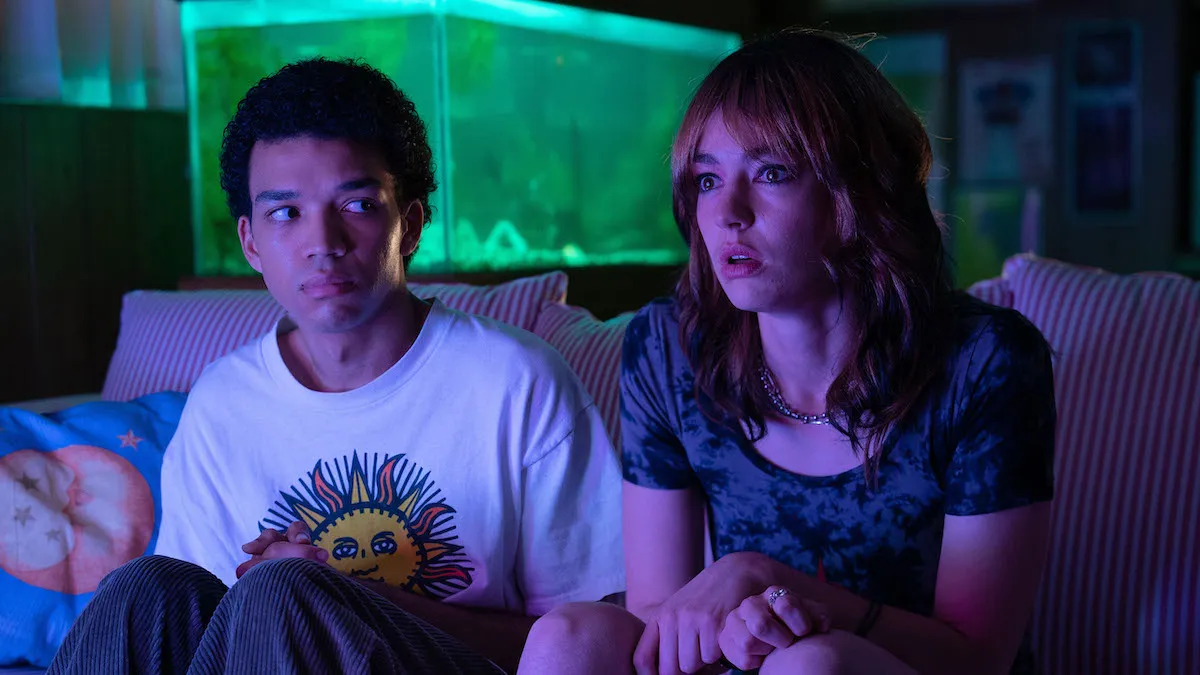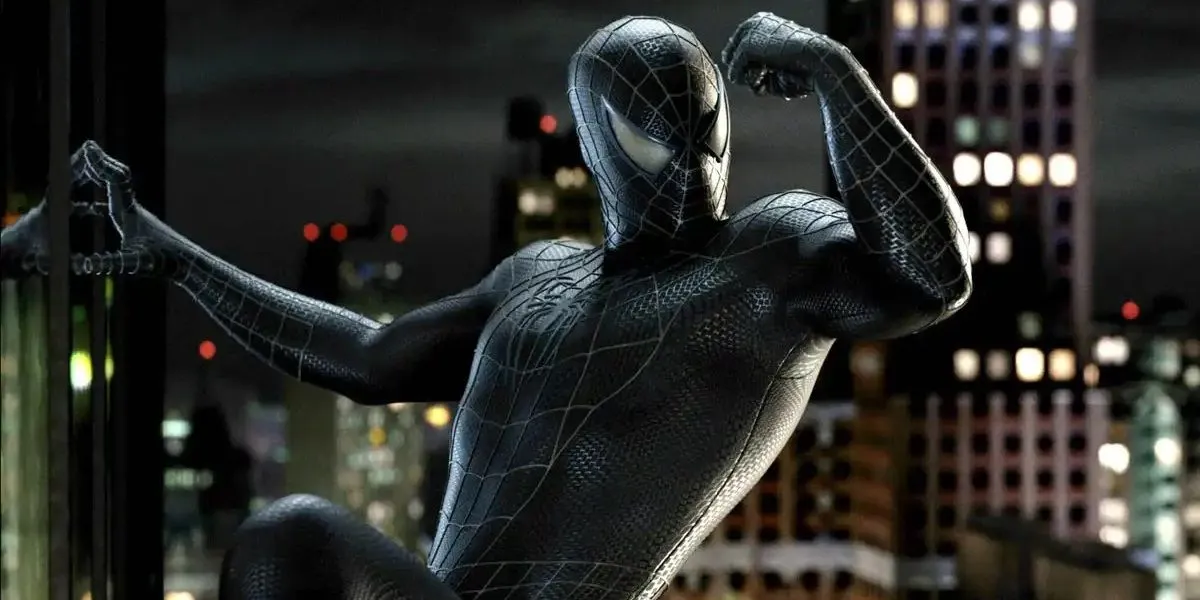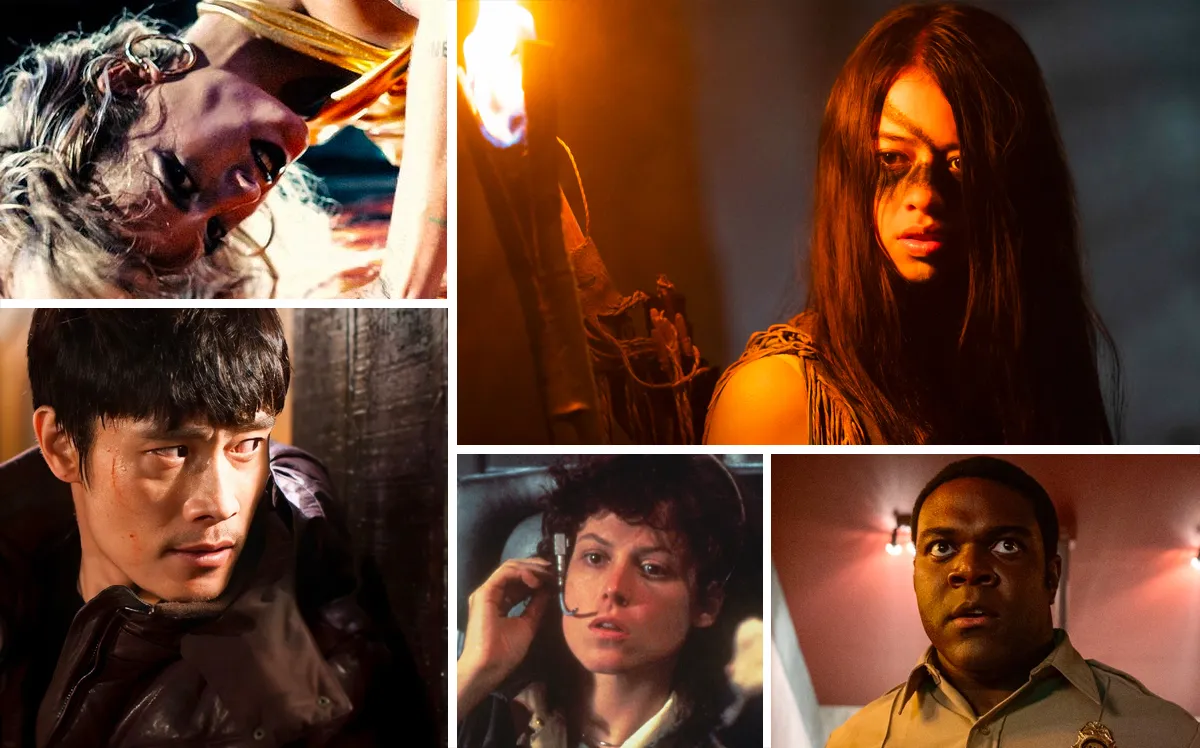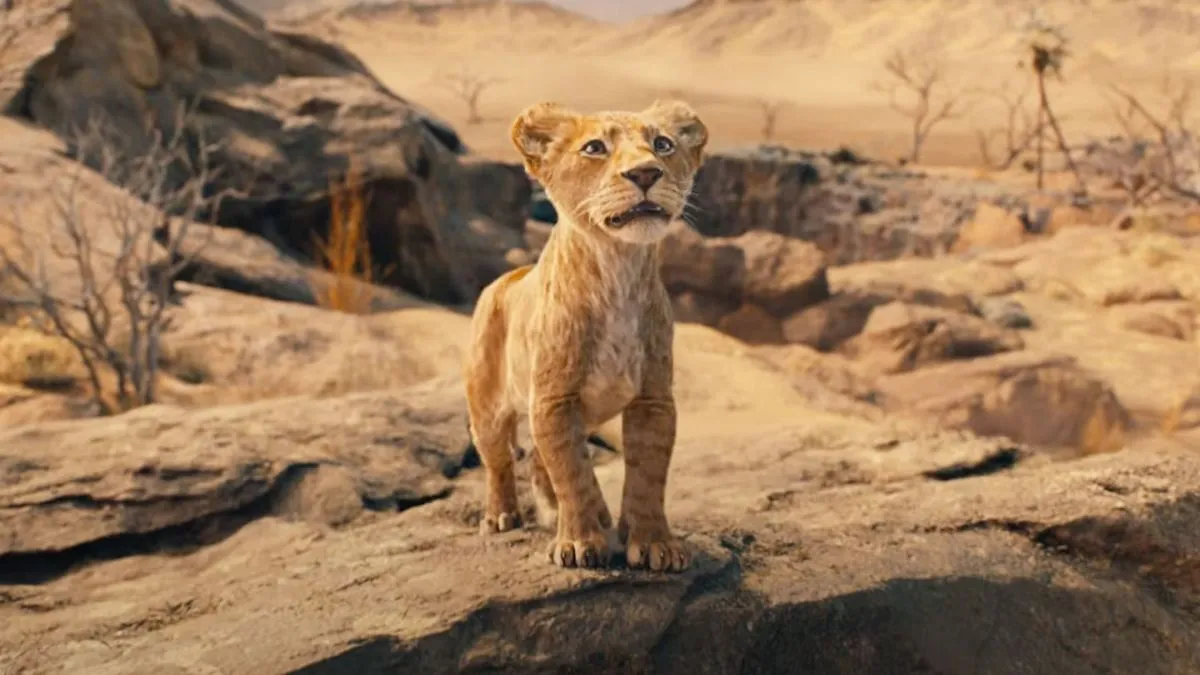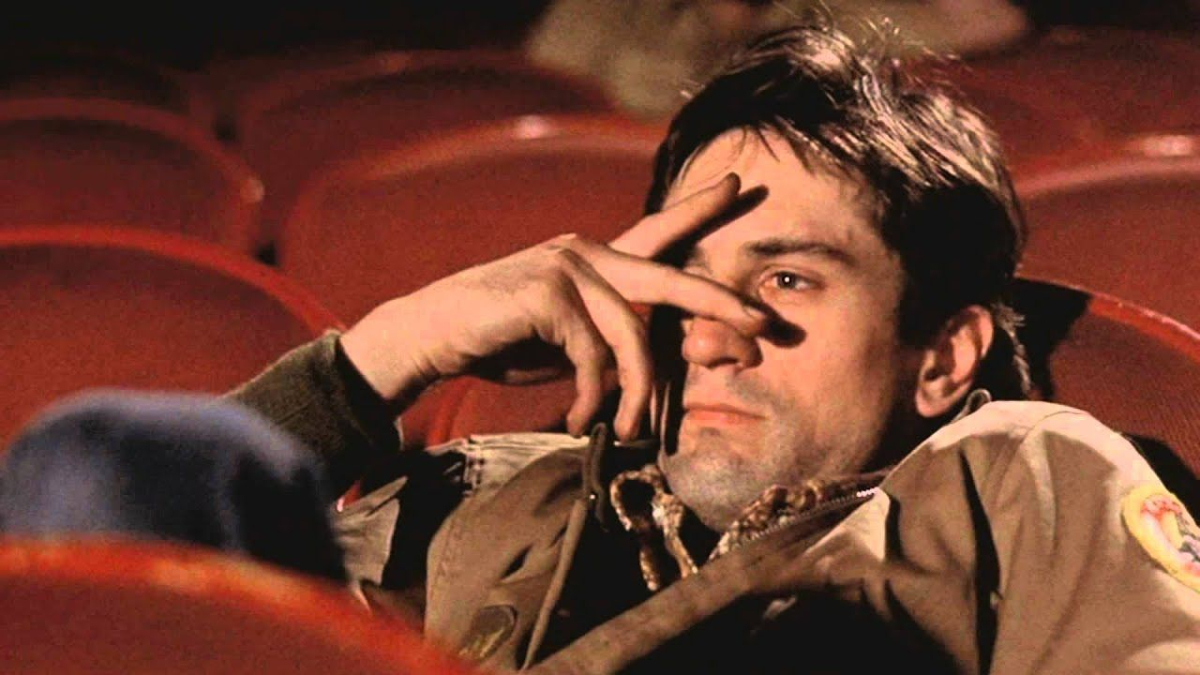In David Lowery’s 2017 film A Ghost Story, it’s suggested that remnants of our collective subconscious—be it ideas, melodies, sentiments, or struggles—will persist long after humanity collapses, and will eventually take new root in those who come after.
If Lowery was on to something (and I’d say he was), it stands to reason that those remnants could be somewhat neatly packaged in a way that immortalizes not only said ideas, melodies, sentiments, and struggles, but the sum of those parts as well.
It’s hard to say exactly how many such sums exist, but the film Whiplash is one of them, and with Damien Chazelle’s devastatingly sharp psychological thriller having officially been named the top Sundance film of all time (as reported by IndieWire), now is as good a time as any to unpack—or at least try to unpack—Whiplash‘s steely nuances 10 years on.
For the uninitiated, Whiplash follows the plight of Andrew Neiman (Miles Teller), an aspiring jazz drummer who enrolls in the prestigious Shaffer Conservatory with the lofty goal of becoming one of the greatest drummers in history. He catches the eye of the school’s Studio Band conductor Terence Fletcher (J.K. Simmons), whose lessons quickly spiral into a never-ending onslaught of physical and psychological torture. As tensions rise and explode, the pair put a rather twisted spin on the idea of exactly what it takes to be the best.
The ruthlessness of undiluted ambition
Even if Whiplash isn’t your tempo, it’s easy to understand why Simmons nabbed the Academy Award for Best Supporting Actor, but it’s Teller’s turn as Andrew—who is arguably just as much of an antagonist as Fletcher despite clearly being the film’s protagonist—that really brings the film’s thematic heft to life.
From the get-go, it’s quietly apparent that Andrew has no intention of letting any obstacle prevent him from getting what he wants, but it bears remembering that that’s only a helpful character trait if such obstacles exist in the first place. Indeed, he’s well aware that perfecting his craft will require real and imagined blood, sweat, and tears on his part; all he needs is an opportunity to shed them. Enter Fletcher, who proceeds to unload an increasingly dangerous surplus of said opportunity onto Andrew.
Fletcher’s slur-laden ruthlessness, of course, is his way of bringing out the best in his students, which enables the inevitable “is Fletcher right?” discourse, but the far more interesting question that we should be asking is this: Is Andrew right?
Indeed, Fletcher’s impact, as we observe it, effectively doesn’t exist without Andrew’s constant return to the proverbial frying pan in pursuit of becoming the best; a pursuit that also includes some venomous ribbing from his extended family and a frustrated snapping from his girlfriend Nicole, whom he breaks things off with when he realizes he can’t put his ambition to the side for their relationship.
But the thing is, Andrew is right. If he wants to be one of the best drummers in history, it’s entirely within his right to both throw himself into things that he believes will help in that pursuit, such as winning Fletcher’s permission to perform with the Studio Band by any means necessary, and to cut himself off from things that he believes will hamper his progress, such as relationships with less ambitious people. And, if we look at Andrew’s goal purely on its own—as Andrew himself does—it’s hard to argue against holding either of those beliefs.
Fletcher, then, becomes Andrew’s greatest obstacle in his pursuit for musical immortality, as well as the most egregious enabler of just how far he’ll go to achieve that. Just as Fletcher believes that the two most harmful words in the English language are “good job,” those words would never satisfy Andrew anyway, making him the perfect accomplice for Fletcher’s relentlessly abusive methods in his quest to push his students to the next echelon.
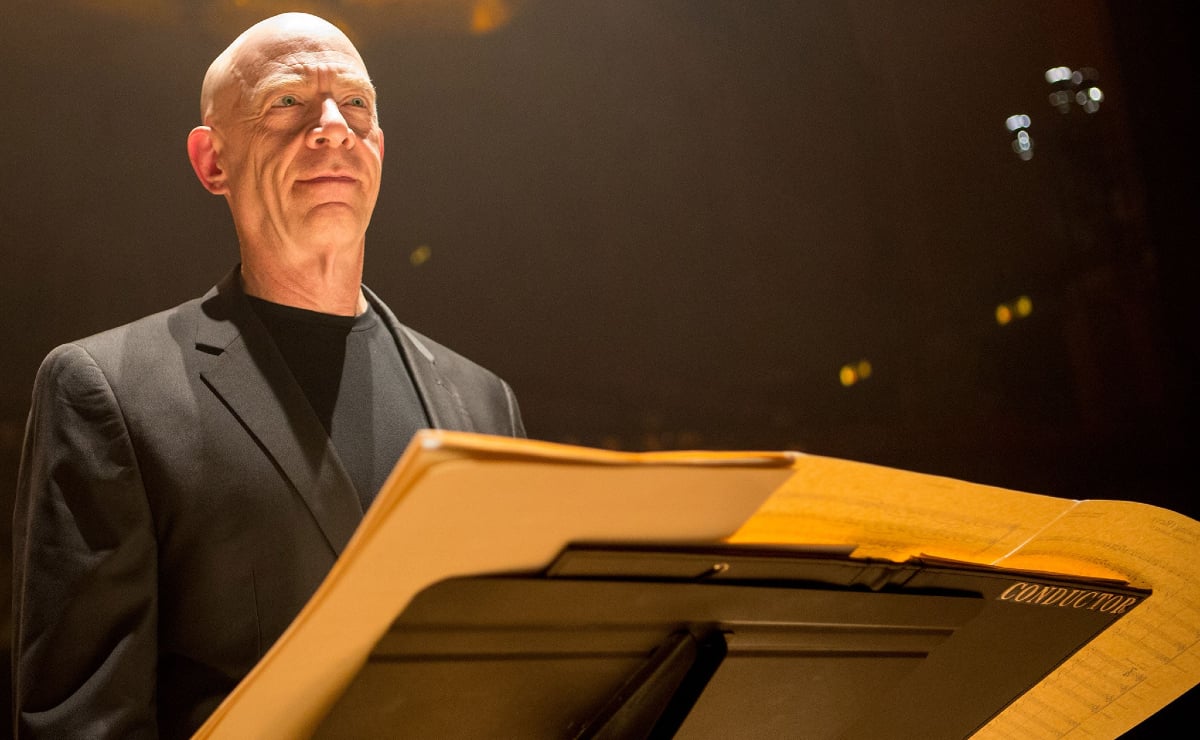
The question of morality is the wrong way to view Whiplash
Whiplash nevertheless remains interested in the question of how much is too much. But, if we understand Fletcher as a tool that Andrew consciously or unconsciously uses to advance his skill, the lens shifts from “is there a limit to how tough you can be?” to “at what point does the dedication to one’s art become detrimental?”
Whiplash offers no straight answer to this, of course (it would be a far weaker film if it did), and that’s precisely what makes it terrifying for some, attractive to others, and entirely captivating for most. All we know for sure is that Andrew’s dedication to his drumming probably exceeds the value he puts on his own life (Chazelle himself believes that Andrew eventually dies of a drug overdose in his 30s), which is neither objectively admirable nor objectively tragic, because that dedication—that experience—is Andrew’s alone, and only he can decide the true extent of his sacrifice.
For Andrew, that extent goes far beyond Fletcher, who stops being useful as soon as he tries to sabotage Andrew during his JVC Jazz Festival performance. The fruits of Andrew’s labor immediately manifest in his taking complete control of the show with an impromptu cueing of “Caravan” that Fletcher is ultimately forced to go along with. By this point, Andrew knows that breaking into the next level of the music world lies with impressing the influential suits in the audience—not Fletcher. Furthermore, we know that that won’t be enough for Andrew, either, and the cycle will probably continue until all he has to show for his life is recognition as one of the best-ever drummers, and by all appearances, he’ll know untouchable satisfaction because of it.
But Whiplash isn’t telling audiences—specifically the aspiring artists among them—to be either more or less like Andrew; it’s instead showing us that Andrew represents the most extreme relationship between art and sacrifice and asking, “who are you with respect to that?”
Artists of all skill levels will tell you that honing your craft requires an exorbitant amount of dedication, but few talk about the fact that there’s no true ceiling on artistic heights, while the only ceiling for the accompanying sacrifice to reach those heights is death itself. The boldness with which Whiplash makes this intensely gripping statement on the nature of art more than earns the film its spot as not only the greatest-ever Sundance film, but one of the greatest philosophical conduits in history, however many iterations of said history there will ultimately be.
(featured image: Sony Pictures Classics)




